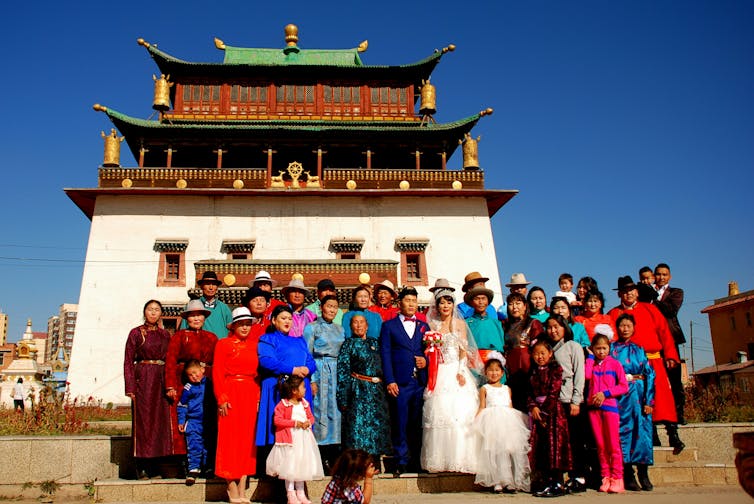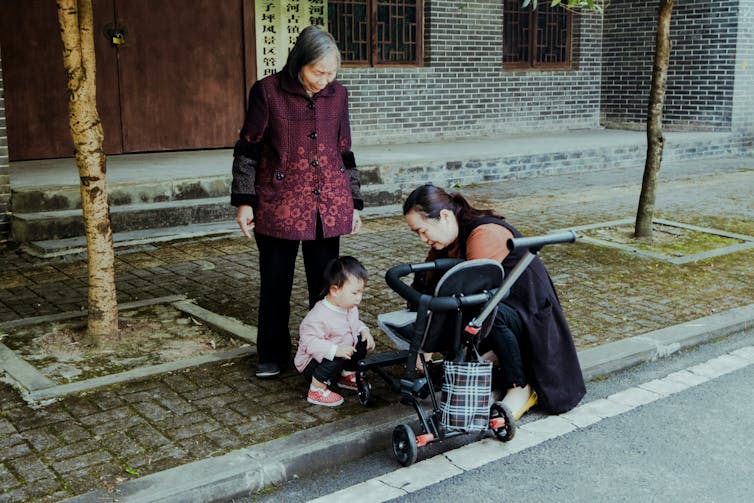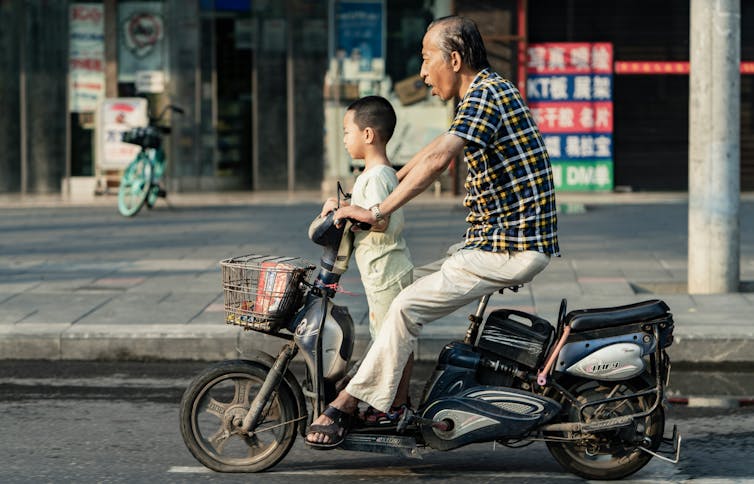During fieldwork in cities in China I came across a new marital practice, locally described as liang-tou-dun, literally “two places to stay”.
A bride and groom, each an only child of their respective family, receive from each set of parents a wedding apartment. The young couple thus has two marriage apartments which they may occupy at different times.
If a couple with “two places to stay” has two children, it is likely one will have the father’s surname and the other the mother’s. This ensures that the familial lines of both families continue – but it can also entrench inequalities between siblings.
What’s in a name?
A child being given the mother’s surname is unconventional. The norm in China is that children take their fathers’ surname, even though Chinese women retain their birth surname after marriage.
The adoption of patronyms – family names handed down through the male line – historically served as an instrument of consolidation for hereditary property owners. But in China patronyms lost this purpose when the Communist Party came to power in 1949 and abolished private property and inheritance. Still, patronyms persisted.

From 1978, Chinese government reforms led to a transition from a planned to a market economy. Since then, many Chinese families have accumulated significant wealth. Such families are focused on how to prevent the loss of property from their family line through inheritance.
This is a real matter of concern for daughter-only families which have become numerically significant as a result of the one-child policy. This was in place from 1980 to 2015, and many (but not all) families were limited to having just one child.
A place to stay
Traditionally, a wife enters her husband’s family and the children take on their father’s surname.
A traditional solution for a family without a male heir is zhao-xu, the phrase for a marriage where a man marries into his wife’s family, living with or in close proximity to her family.
Zhao-xu not only requires cohabiting after marriage with the wife’s parents, but also that their children take the mother’s surname, ensuring continuance of the mother’s family’s line.

This traditional form readily adapts to the needs of daughter-only families in contemporary China. Sons-in-law in these families generally come from families with more than one son, so the husband’s family’s line is not threatened. In these circumstances the wife’s family provides a wedding apartment, furniture, household equipment, dowry and wedding banquet.
Traditionally in China it is a son’s responsibility to support and care for his ageing parents. A daughter-only family requires her to take an essential role in carrying out elderly support obligations.
Two names, two places
An alternative to zhao-xu is “two places to stay”, where the bride’s parents provide her with a wedding apartment and the groom’s parents provide him with a wedding apartment. This tends to happen for young couples who are each an only child in their respective families.
With owning two apartments, the young couple marries into neither family, but instead maintains close relationships with both. They move between two apartments, occupying one for a certain period of time and then the other.
As each set of parents endows the young family, the grandparents play an important role in the choice of their grandchildren’s surname. If the young couple has two children then a perfect solution to continuing both family lines is that one child takes the father’s surname and the other the mother’s.

First-born children, especially sons, have a special role in the continuity of a family line, and so it is likely the firstborn will take the father’s name.
But if the young wife’s family has higher social or economic standing than her husband’s, it is likely the first child will take the mother’s surname.
“Two places to stay” may generate inequalities within families. Grandparents tend to provide resources (educational, recreational and medical) to the grandchild who shares their surname.
Because of the differences of access to resources, the future education and career prospects of siblings will reflect not their immediate family background, but the different endowments of their respective grandparents.
Two places to stay is a new form of marriage in China, and a new form of surnaming siblings. It is a new way of doing family, an innovation in intergenerational relations.
Xiaoying Qi received research funding from The Hong Kong Baptist University’s Start-Up Grant and the Sociology Department Research Fund.
This article was originally published on The Conversation. Read the original article.







